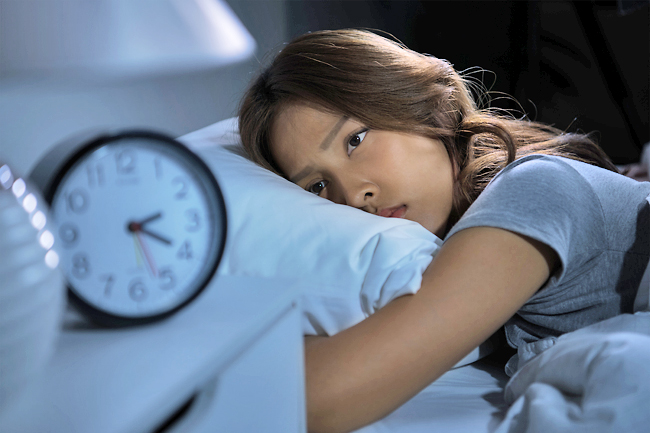Hakim Hayat
Globally, around one-third of people experience unsatisfying sleep, according to statistics from the United States (US) National Library of Medicine. If sleeping difficulties meet certain criteria, they are diagnosed as the sleep disorder insomnia.
Insomnia is a common sleep disorder that can make it hard to fall asleep, hard to stay asleep, or cause you to wake up too early and not be able to get back to sleep. You may still feel tired when you wake up. Insomnia can sap not only your energy level and mood but also your health, work performance and quality of life.
How much sleep is enough varies from person to person, but most adults need seven to eight hours a night. Insomnia can reduce cognitive ability, decrease quality of life, and potentially lead to other health issues.
Hence, treatment is important. Here, we explore what insomnia is and the disorder’s various subtypes, symptoms, causes and tips to prevent it.
FIRST OF ALL, WHAT IS INSOMNIA?
According to the American Academy of Sleep Medicine, insomnia is defined as difficulty either falling or staying asleep that is accompanied by daytime impairments related to those sleep troubles.

The American Academy of Sleep Medicine categorises insomnia into different types: chronic insomnia disorder, short-term insomnia disorder, and other insomnia disorder.
Chronic insomnia is when a person experiences sleeping difficulties and related daytime symptoms, like fatigue and attention issues, at least three days per week for more than three months or repeatedly over years. The academy estimates that about 10 per cent of people have chronic insomnia disorder.
People with chronic insomnia commonly feel distressed about their inability to sleep and the daytime symptoms caused by those sleep issues.
Symptoms are generally severe enough to affect a person’s work or school performance as well as their social or family life.
Short-term insomnia disorder involves the same sleep difficulties and symptoms as chronic insomnia disorder, but those problems are experienced for less than three months and may not occur three times per week. It is believed that between 15 per cent and 20 per cent of adults experience short-term insomnia in any given year.
Often, short-term insomnia can be traced to an external cause, such as a life stressor.
People who tend to be light sleepers are more likely to experience short-term insomnia than others.
If short-term insomnia disorder persists over multiple months, it can become reclassified as chronic insomnia disorder.
Also, in specific cases, a doctor may diagnose a condition called other insomnia disorder if a person has significant sleeping problems but does not meet all of the criteria for either chronic or short-term insomnia disorder. Because of its vague nature, this diagnosis is
rarely used.
WHAT ARE THE SYMPTOMS OF INSOMNIA?
Both short-term and chronic insomnia share certain symptoms. One aspect of those symptoms relates to nighttime sleep, when a person must experience at least one of these types of sleep issues: trouble falling asleep; trouble staying asleep throughout the night; unwanted early morning waking; resisting sleeping at one’s bedtime (for children and teens) and difficulty sleeping without a caregiver’s help (for children and teens).
In addition, a person must have at least one of several daytime symptoms related to their sleeping problems: fatigue; impaired attention or memory; trouble with work, school, or social performance; irritability or disturbed mood; sleepiness; behavioural issues, like hyperactivity or aggressiveness; decreased motivation; increased accidents or mistakes and worries about or discontent with one’s sleep.
Talk with your doctor if you are having difficulty falling asleep or staying asleep.
You should also talk with a doctor if you have significant sleepiness or other daytime impairments.
A doctor can ask questions to better understand your situation and order tests to determine if an insomnia diagnosis is appropriate. Symptoms of insomnia can overlap with symptoms of other sleep disorders, so it is important to work with a doctor rather than try to self-diagnose any sleeping problem.
TIPS TO SLEEP BETTER
Simple changes in your daily habits can often help getting better sleep.
Such changes include: maintaining the same bedtime and wake time every day, even on weekends; reserving use of the bed for sleep; Getting out of bed if falling asleep is taking too long or causing anxiety; not consuming caffeine or nicotine, especially near bedtime; keeping the bedroom both dark and quiet; refraining from watching television before bed; not checking the clock to see how long it is taking to fall asleep and avoiding eating large meals too close to bedtime.
For parents of children with sleeping problems, establishing firm, consistent limits around bedtime activities can help prevent a child from becoming dependent on any item or routine to fall asleep.





